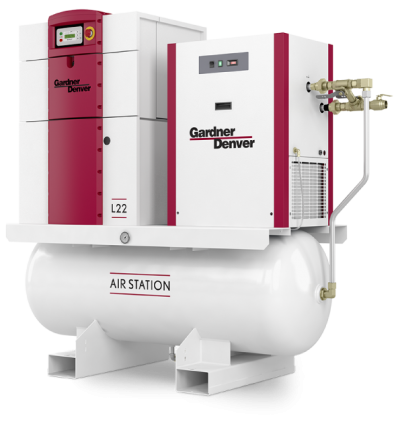
There are so many types and models of air compressors available, that it’s easy to get confused. And besides the many different models and sizes to choose from, there are extra options like dryers and filters to consider. Today we’re discussing the differences between two common types – rotary screw air compressor vs. piston in GA.
Don’t worry - once you know what to look for, buying the right air compressor is a fairly simple and straightforward process.
To make the right decision, we must know:
First, let’s talk about the basics, which are air pressure and compressor capacity.
The two most popular air compressor types are the reciprocating (piston) air compressor and the rotary screw air compressor. Other types include scroll, turbo and rotary vane compressors, but those are mostly used for specific applications, so today we’re just focusing on the two.
The reciprocating compressor: The reciprocating compressor compresses air with the use of one or more cylinders/pistons. The pistons move up and down inside the cylinders to compress the air.
Reciprocating compressors are relatively small and can be low to very high pressure (7 – 1,000 bar or 100 – 15.000 psi), are low capacity and are designed for intermittent use. They are often found at, or used for:
The rotary screw compressor: The rotary screw compressor compresses air by two screws (rotors) that turn in opposite directions inside the housing. Air gets trapped between the rotors and is compressed. They are low pressure (7 – 15 bar or 100 – 215 psi), high capacity, and are designed for continuous use (24 hours a day).
Rotary screw compressor are large, industrial machines. They start at about 10 HP and go up to more than 1,000 HP.
Rotary Screw Air Compressor Vs. Piston in GA: Which One is Right for Your Application?
Choose a reciprocating compressor when you need a small amount of air and don’t use compressed air continuously. If you do have some big tools that require a lot of air - but you only use them once in a while - it’s better to install a larger compressed air receiver than to buy a bigger reciprocating compressor or even a rotary screw compressor.
If your compressor stands still more than 60% of the time, it’s often better to get a reciprocating compressor. If you need high pressure (above 1,500 psi), a reciprocating compressor is the way to go. Screw compressors only go up to about 150 psi (10 bar) maximum.
If you have a larger workshop where compressed air is used continuously, or if you have a factory with one or more machines that use compressed air, choose a rotary screw compressor. Keep in mind that this type of compressor doesn’t like standing still - it makes them rusty.
Still don’t know which type to choose for your application? We can help! When it comes to deciding between rotary screw air compressor vs. piston air compressor equipment in GA we are experts! Call us today and we’ll be happy to walk you through the purchase process.
P.S. Don’t forget we also offer engineering services, repairs and replacement parts!


